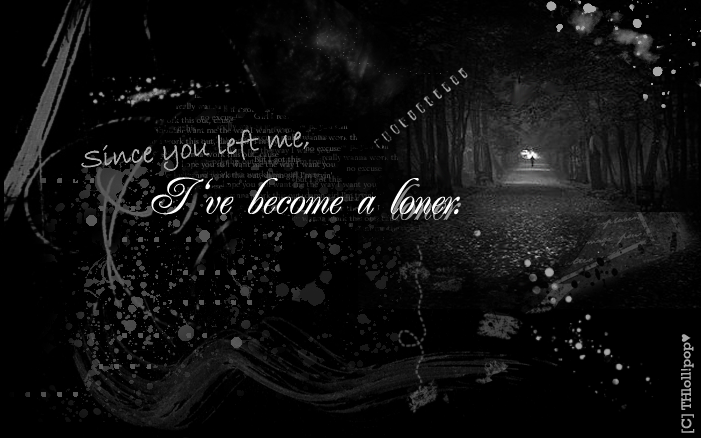If you’ve ever been betrayed or severely disappointed by someone you love, you know how difficult it can be to trust again. Whether you were let down by a friend, spouse, lover, or even a parent, this can negatively impact future relationships.
Living with suspicion of people’s motives or refusing to trust anyone is nothing more than a defense mechanism. And why do we use defense mechanisms? To protect ourselves from that which we fear. That’s right; fear is the ruling factor beneath the unwillingness or inability to trust others.
These 7 tips are for anyone with a desire to trust again.
1) Give yourself time to heal
It’s nearly impossible to heal without becoming consciously aware of exactly what you are feeling. Is it sadness, guilt, anger, disappointment, depression, loneliness or fear? Chances are it is an ugly combination of these emotions. Allow yourself to fully acknowledge each feeling.
2) Link actions and emotions
After acknowledging what you feel, consider the actions that “made” you feel that way. Write down the actions taken by your beloved that are (seemingly) making it hard for you to trust again. Did your mate have an affair? Did a family member steal from you? Did a friend tell your darkest secret to others? Did a loved one call you ugly names, deny you to their friends, or physically harm you? Did a parent let you down? Writing these specific actions won’t feel good, but it is necessary in order to face and move past the pain.
For each action that you write, notice the emotions that you feel. In most cases, thoughts about one action trigger several emotions. Write each feeling next to the action. If you feel powerless, frustrated, and ashamed when thinking of your mate’s affair, write it down.
If you feel enraged, disappointed, and hurt by your best friend’s lies, write it down.
Note: It is important NOT to take a break from this process during this step.
3) Discover the thought triggers
After acknowledging your feelings in regards to the actions taken by someone you trusted, the next step is to discover the underlying thoughts. Every single emotion is triggered by thought. And our thoughts are the one thing that we can always control.
Using the information from step 2, write what you thought about each action. If your parent was not there for you when you needed him/her, what do you think about that?
Some thoughts may be:
My father never really loved me, what kind of parent does this anyway, so many people had great childhoods but look what I got, why me, my mother should have stood up for me, I was never the favorite, If only I was smart like my brother, she would (or would not) have done this if she really cared.
In the case of betrayal by a lover, you may think:
She lied and I was stupid enough to believe her, he must have never really loved me, why do I always get treated this way, I wonder if it’s because I’m not as pretty as she is, her new guy is much more successful than I am, I wasted __ years of my life for nothing, I bet she even slept with him in our home, he is a heartless scumbag, I should have listened to my friends
It is important to fully process the thoughts that have left you filled with negative feelings about a situation. You can use the form, when did I thought and I felt .
When the list is done, realize that it is your thoughts about the actions that trigger your feelings. It is not the actions themselves. This will help you to realize that you are 100% empowered to change how you feel. No, it doesn’t mean that what the other person did was okay. No, total recovery from the hurt won’t be immediate. But doesn’t it feel better to know that you, and only you, are in control of your happiness?
4. Replace blame with understanding
With the first 3 steps, you’ve had more than enough time to own your feelings. You’ve tied each action to a feeling, and each feeling to trigger thoughts. Now, it’s time to move on.
Instead of blaming the other person for your feelings, do the only responsible and healing thing that you can do. Accept full responsibility for your actions and feelings. This doesn’t mean that anything is your fault, but there is also no benefit for you in laying fault on the other person. They have complete responsibility for their actions and feelings, just as you do.
Remember this: Whatever action a person takes has everything to do with them and nothing to do with you. If the person called you horrible names, they obviously have a lot of negative thoughts. Maybe they are so insecure that they need to belittle others—and you just happened to get caught in the crossfire. If they had secret affairs, it could be because validation from others calmed their feelings of inadequacy.
You don’t need to completely understand why others say or do things that you dislike, just make sure you understand that it is not really about you.
5. The art of forgiveness
Once you have achieved some degree of understanding, forgive the person who betrayed your trust. This does not mean taking the betrayer back into your life; it just means not holding a grudge in your heart.
Like you and I, she or he is a work in progress. We all make mistakes and we can move on without being forgiven. However, we can’t move on without forgiving. In other words, your refusal to forgive does not hinder the other person, but it does thwart your healing.
6. Embracing the life lessons
Every trial or difficulty has a lesson within it that can enhance your life. Some lessons are clearer than others, but they are always there. Figure out how the relationship (and its ending) contributed to your personal development. Did you become a much stronger person? Did you learn a lesson about listening to your gut instincts when meeting someone?
Nothing changes the fact that we ALL experience undesirable circumstances in our lives. However, your success depends upon what you take from each challenge. Remember to pause and listen in the stillness of the aftermath so that you never miss the lesson being taught.
7. Moving on
Life goes on, right? But how will you think or feel differently moving forward? You have choices.
You can concentrate on the betrayal that may have ended, or drastically changed, a relationship. You can walk around with a chip on your shoulder, unwilling to accept that your thoughts are the cause of your prolonged misery. You can hold grudges against others for their mistakes and even repress feelings about your own mistakes.
Alternatively, you can appreciate yourself for having the courage to forgive. You can be thankful for the strength of character that you’ve built as a result of hardship. You can replace your negative thoughts with thoughts of understanding. You can appreciate the past for the contribution to your growth. You can love the good and the bad for the good in it all. You can let go, love fearlessly, and trust in the perfection of this great Universe.
All of these are choices that determine how you will experience life. And the person doing the choosing is none other than you.
Will you stunt your own growth or reopen your heart?




